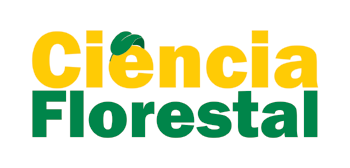Based on the general systems theory, an ecological model for the restoration of ecosystems has been developed, which soils are highly degraded, and treating the ecosystem as a complex dynamic system, hyper-sensitive to initial conditions of soil preparation. Assuming that degraded ecosystems are sensitive to initial conditions of soil preparation, the technique of roughness was evaluated (relief variations alternating between concave and convex surfaces) to trigger over time emergent properties that accelerate the process of ecological restoration. The degraded ecosystems can be understood as organizationally open systems, as a dissipative structure, in which irreversibly matter and energy flow. The main task in ecological restoration in areas that had the soil degraded is to achieve the internalization of matter and energy to induce the system to organizational closure. The roughness, represented by soil micro-topography is an effective technique in the internalization of matter, retaining water, sediment, organic matter, nutrients and seeds. Variations of relief trigger environmental changes over time in a dynamic and heterogeneous way, which influence the interactions between solar radiation, moisture and nutrients, creating different opportunities for plants and animal species. There must be an oriented concentration to flow structures and processes between the degraded ecosystem (system) and the environment (neighborhood). In this approach, a particular concentration on the interrelationships between the system and the environment is dedicated. For ecological restoration, whose area is with degraded soil, such as mining and ranching, a new integrative degraded systemic approach is proposed, in which the roughness of the soil might trigger spatial and temporal patterns and emergent environmental properties due to the hyper-sensitivity to initial conditions of the land preparation.
ecological restoration; systems thinking; internalization; micro-topography





